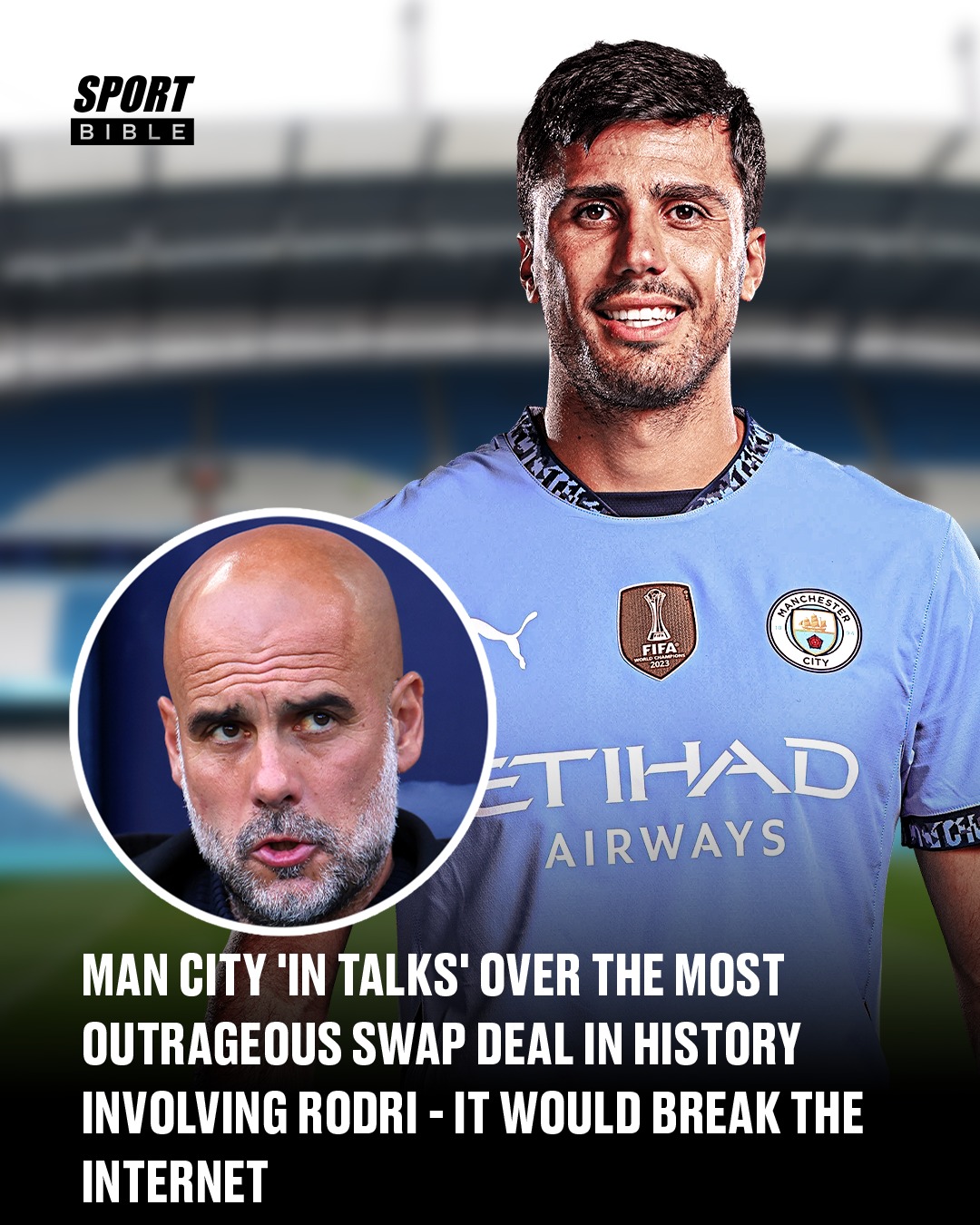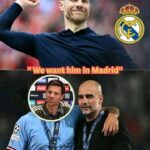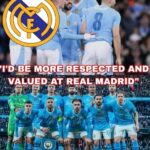Manchester City Season Review: Injuries, Transfers, and Transitions

The 2024-25 football season has been a tale of two halves for Manchester City, marked by devastating injuries, shocking transfer speculation, and the end of an era with legendary departures. What was expected to be another dominant campaign for Pep Guardiola’s side instead became a season of adaptation, struggle, and ultimately reflection on the fragility of even the most successful football dynasties.
The Rodri Catastrophe: When Everything Changed
The defining moment of Manchester City’s season came on a seemingly ordinary September afternoon at the Etihad Stadium. During what many considered a potential title-deciding clash against Arsenal, Spanish midfielder Rodri was forced from the pitch in the 22nd minute following a collision with Thomas Partey. What initially appeared to be a routine knock would prove to be the catalyst for everything that followed.
After initial uncertainty about the severity of the injury, Manchester City finally broke their silence with an official statement that sent shockwaves through the football world. The club confirmed that Rodri had suffered a ligament injury to his right knee, requiring specialist consultation in Spain. The assessment revealed what many had feared: a ruptured anterior cruciate ligament that would sideline the 2024 Ballon d’Or winner for the remainder of the season.
The timing couldn’t have been worse for City. Rodri had only just returned to the squad after suffering a hamstring injury during Spain’s victorious Euro 2024 campaign, where he played a pivotal role in defeating England 2-1 in the final. The Arsenal match marked his first appearance of the season, as Guardiola had been carefully managing his return to fitness. Instead of easing back into the campaign, Rodri found himself facing eight months on the sidelines.
The statistical impact of Rodri’s absence became immediately apparent. Since joining City in 2019, the Spanish midfielder had made 260 appearances, missing just eight games due to injury throughout his entire tenure. His reliability had been matched only by his excellence, with four Premier League titles and a Champions League triumph to his name. More importantly, his presence in the heart of City’s midfield had become the foundation upon which Guardiola’s tactical system was built.
Speaking in his post-match press conference, a visibly concerned Guardiola acknowledged the severity of the situation. “Rodri is a strong man! He left the pitch in this action because he felt something. Otherwise, Rodri stays there,” the manager explained. “Rodri is a vocal guy, has presence… He’s the best holding midfielder in the world, a potential Ballon d’Or winner, I would love it. He’s important. But it’s happened.”
The prescience of Guardiola’s words about the Ballon d’Or would prove accurate, as Rodri was indeed awarded the prestigious honor in 2024, recognition of his exceptional contributions to both club and country. However, the irony was not lost on observers that City’s most decorated individual season in terms of personal accolades coincided with their most challenging collective campaign.
The Immediate Aftermath: City’s Search for Solutions
With Rodri sidelined, Manchester City immediately began exploring both internal and external solutions to fill the void. Mateo Kovacic, who had replaced the injured Spaniard against Arsenal, became the immediate stop-gap solution. However, it quickly became apparent that no single player could replicate Rodri’s unique combination of defensive solidity, passing range, and tactical intelligence.
According to reports from TEAMtalk, City compiled a four-player shortlist to potentially replace Rodri if his injury proved to be season-ending. The names on this list revealed the club’s strategic thinking and their understanding of the market’s limited options for players of Rodri’s caliber.
Inter Milan’s Nicolo Barella emerged as a primary target, with Guardiola having witnessed the Italian’s capabilities firsthand during the 0-0 Champions League draw between the two sides earlier in the month. Barella’s versatility and technical ability made him an attractive option, though his importance to Inter Milan meant any deal would require significant investment.
Atalanta’s Ederson and Crystal Palace’s Adam Wharton also featured on the shortlist, representing different profiles and price points. However, the most intriguing name was Real Sociedad’s Martin Zubimendi, a player whose career had become intrinsically linked with Rodri’s own international journey.
Zubimendi’s inclusion was particularly significant given his history with Liverpool. The 25-year-old had famously turned down a move to Anfield earlier in the summer, leaving Arne Slot’s side without their primary defensive midfield target. The irony was that Zubimendi had actually replaced Rodri at half-time during the Euro 2024 final against England, helping Spain secure victory. His potential arrival at City would represent not just a replacement for Rodri, but a continuation of the Spanish national team’s midfield philosophy.
The speculation around Zubimendi was further fueled by his contract situation at Real Sociedad. Club president had confirmed that no talks had taken place regarding a new deal, stating: “There has not been [talks] now and there has not been before. He did not put any conditions on us [about a new contract before rejecting Liverpool]. He understood the moment, and knew that it was a market in which some players were going to leave. And he understood that it was a time to stay at Real Sociedad.”
The Season Unravels: Title Defense Crumbles
The impact of Rodri’s absence extended far beyond tactical adjustments. Manchester City’s entire season began to unravel in ways that few could have predicted. The team that had dominated English football for the better part of a decade suddenly looked vulnerable, disjointed, and lacking the control that had been their trademark.
Liverpool, under the guidance of new manager Arne Slot, seized the opportunity presented by City’s struggles. What began as a competitive title race gradually transformed into Liverpool’s procession toward their first Premier League title since 2020. The psychological impact on City was evident as they watched their stranglehold on English football slip away.
The culmination of City’s disappointing season came in the most painful way possible: a 1-0 defeat to Crystal Palace in the FA Cup final. For a club accustomed to collecting silverware with almost monotonous regularity, the shock of losing to Palace in a major final represented a nadir that few associated with the club had experienced in recent memory.
The FA Cup final defeat was particularly crushing because it denied City the opportunity to salvage something from what had become a transitional season. More importantly, it served as a stark reminder that in football, success is never guaranteed, regardless of past achievements or financial investment.
The Comeback: Rodri’s Return
After eight months of rehabilitation and recovery, Rodri finally returned to action in dramatic fashion. His comeback came during City’s 3-1 victory over Bournemouth, where he was introduced for an eight-minute cameo that sent the Etihad Stadium into raptures. The emotion was palpable as fans welcomed back the player whose absence had defined their season.
The sight of Rodri back in a City shirt represented more than just the return of a key player; it symbolized hope for the future and the possibility of redemption. His presence on the pitch, even for such a brief period, provided a glimpse of what City had been missing throughout the campaign.
Speaking about his return, medical staff praised Rodri’s dedication during his rehabilitation process. The midfielder had worked tirelessly to ensure he would be ready for the start of the following season, with City hoping to reclaim the Premier League title at the first attempt.
The Bellingham Bombshell: A Swap Deal for the Ages
Just as City fans were celebrating Rodri’s return, the football world was rocked by reports of what could become one of the most audacious transfer deals in history. Spanish publication Defensa Central claimed that Manchester City had launched a stunning bid to sign England international Jude Bellingham from Real Madrid.
However, this wasn’t just any ordinary transfer approach. The reports suggested that City were willing to offer Rodri himself as part of a swap deal for the 21-year-old Bellingham. If true, such a transaction would represent one of the most remarkable transfers in football history, involving two of the game’s most coveted midfield talents.
The logic behind such a deal was compelling from multiple perspectives. For City, Bellingham would represent a long-term investment in a player who had already proven himself at the highest level with both Borussia Dortmund and Real Madrid. At just 21, he had already won La Liga and the Champions League during his first season at the Bernabeu, establishing himself as one of the game’s brightest young stars.
From Real Madrid’s perspective, acquiring Rodri would address their own midfield needs while bringing in a player at the peak of his powers. The 28-year-old’s experience, leadership qualities, and proven ability in the biggest moments would complement their existing squad perfectly.
The potential swap would also represent a fascinating collision of different career trajectories. Rodri, having established himself as arguably the world’s best defensive midfielder, would be moving to a club where he could compete for the Champions League and potentially add to his growing collection of honors. Bellingham, meanwhile, would be returning to the Premier League where his career began, bringing with him the experience and maturity gained from his time in Spain.
The personal connection between the two players added another layer of intrigue to the potential deal. Rodri had faced Bellingham in the Euro 2024 final, where Spain defeated England 2-1. The Spanish midfielder’s performance in that match, before his subsequent injury, had been instrumental in his country’s triumph and his eventual Ballon d’Or recognition.
De Bruyne’s Farewell: The End of an Era
While the Rodri-Bellingham speculation dominated headlines, Manchester City was simultaneously preparing for another significant departure. Kevin De Bruyne, arguably the club’s greatest ever player, announced his intention to leave the Etihad Stadium after a decade of unparalleled service.
De Bruyne’s final appearance at the Etihad came during the crucial clash with Bournemouth, the same match that witnessed Rodri’s emotional return. The Belgian midfielder, who had arrived from VFL Wolfsburg for £54 million in 2015, was set to receive one of the club’s most prestigious honors: a lifetime season ticket.
This rare memento had been awarded to only six other players in City’s history: Joe Hart, Pablo Zabaleta, Yaya Toure, David Silva, Vincent Kompany, and Sergio Aguero. De Bruyne’s inclusion in this exclusive group represented the ultimate recognition of his contributions to the club’s most successful period.
The statistics surrounding De Bruyne’s City career were staggering. More than 400 appearances, six Premier League titles, five Carabao Cups, two FA Cups, and one Champions League triumph painted the picture of a player who had been central to the club’s transformation into a global powerhouse. His two PFA Player of the Year awards further underlined his individual excellence.
Guardiola paid tribute to his departing captain in emotional terms: “Kevin will get what he deserves. That is the best compliment for his incredible trajectory. What he has done with other legends in the club, it would not have been possible since Sheikh Mansour took over the club to reach another level.”
De Bruyne’s departure was complicated by family considerations. The 33-year-old had been open about the challenges of making decisions that affected not just his career but also his wife and young children. “I have a family and I have young kids,” he explained. “I have to take a decision that works for all of us, not just me. When I was 20 years old and all by myself, I could make a decision, and it would be easy, but now it is a bit more complex.”
Speculation about De Bruyne’s next destination intensified when he confirmed he had held talks with clubs and didn’t rule out remaining in the Premier League. “Maybe,” he responded when asked if he could play for another Premier League club, sending shockwaves through City supporters who had assumed he would be moving abroad.
Gaming Glory: Rodri’s Virtual Dominance
While recovering from his injury, Rodri achieved a different kind of recognition in the virtual world. EA Sports FC 25 ratings were leaked online, revealing that the Spanish midfielder had made history by becoming the highest-rated defensive midfielder ever in an EA Sports football game.
With an overall rating of 91, Rodri was tied with Erling Haaland, Kylian Mbappe, and Barcelona women’s star Aitana Bonmati as the game’s highest-rated players. His rating surpassed established superstars like Kevin De Bruyne, Jude Bellingham, Vinicius Jr, Harry Kane, Mo Salah, Lionel Messi, and Cristiano Ronaldo.
The rating reflected Rodri’s well-rounded abilities, with impressive statistics across all categories: 80 shooting, 86 passing, 84 dribbling, 87 defending, and 85 physical. This virtual recognition served as another testament to his real-world impact and the respect he commanded within the football community.
The historical significance of a defensive midfielder achieving the highest rating in the game was not lost on observers. Traditionally, EA Sports had favored forwards and attacking players when assigning their highest ratings, making Rodri’s achievement all the more remarkable.
Looking Forward: Lessons and Legacy
As Manchester City’s tumultuous season drew to a close, several key lessons emerged from their experiences. The Rodri injury had exposed the dangers of over-reliance on individual players, regardless of their quality. City’s dominance had been built on the foundation of their Spanish midfielder’s excellence, and his absence revealed the fragility of even the most successful systems.
The potential Bellingham swap deal represented more than just a transfer rumor; it symbolized City’s willingness to adapt and evolve. The club’s apparent readiness to part with their Ballon d’Or winner in exchange for a younger talent suggested a long-term strategic vision that prioritized sustainable success over short-term stability.
De Bruyne’s departure marked the end of an era for Manchester City. His decade at the club had coincided with their most successful period, and his leaving represented a natural transition point. The challenge for City would be replacing not just his technical abilities but also his leadership and big-game mentality.
The season’s events highlighted the unpredictable nature of football and the importance of squad depth. City’s struggles without Rodri served as a reminder that no team, regardless of resources or past success, is immune to the challenges posed by injuries and transitions.
As City prepared for the following season, they did so with the knowledge that change was inevitable but not necessarily unwelcome. The return of Rodri provided cause for optimism, while the potential arrival of new talent offered the promise of fresh energy and ideas.
The 2024-25 season would be remembered as a watershed moment for Manchester City – a time when their vulnerabilities were exposed, their legends departed, and their future direction was questioned. However, it would also be remembered as a season that demonstrated the club’s resilience and their commitment to remaining competitive at the highest level.
In the end, Manchester City’s challenging season served as a reminder that in football, as in life, success is not permanent, failure is not final, and the courage to continue is what truly matters. The club’s response to adversity would ultimately define their legacy as much as their previous triumphs.















